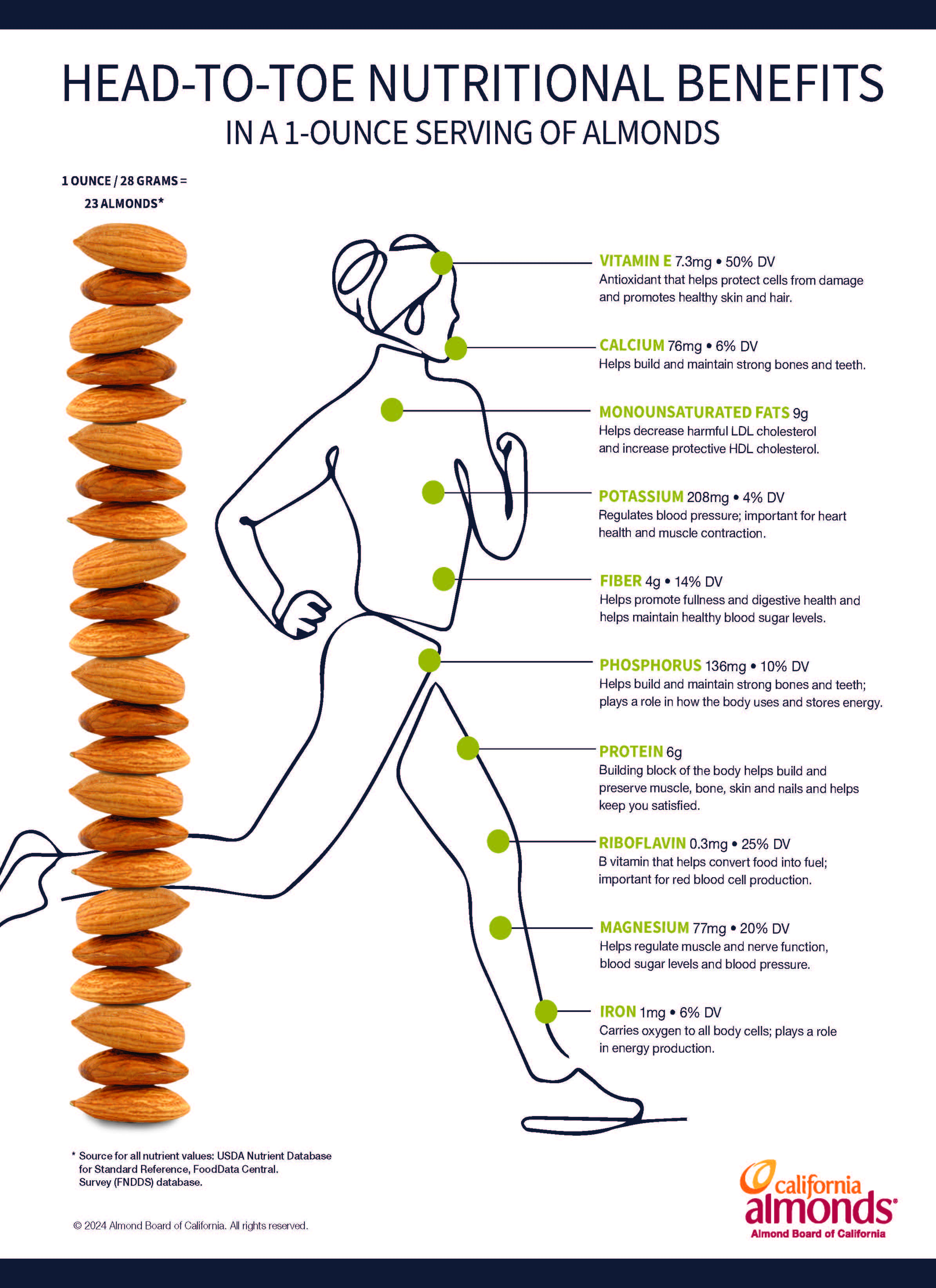Let’s dive into some of the surprising health benefits that are linked to almonds.
Heart Health: February is Heart Health Month (perfect timing for International Almond Day) and almonds are proving time and again to be a valuable component of a heart-healthy diet regimen. In fact, in a systematic review and meta-analysis (837 participants, 18 studies) from several genetically diverse groups, and for people with a range of BMIs, almond consumption was associated with reductions in total and LDL cholesterol (the bad one) and with no effect on HDL cholesterol (the good one).1-4 Scientific evidence suggests, but does not prove, that eating 1.5 ounces per day of nuts, such as almonds, as part of a diet low in saturated fat and cholesterol may reduce the risk of heart disease.
Exercise Recovery: Sports nutrition research reported that eating 2 ounces (57g) of almonds daily for one month is associated with better recovery after exercise, including reduced feelings of post-exercise fatigue and tension, increased leg/back strength during recovery and decreased muscle damage during the first day of recovery in 46 healthy adults who exercised less than three times per week.5
Skin Health: Recent studies have explored how eating almonds affects wrinkle severity, skin tone and UV resistance in certain populations. In one study, clinical researchers concluded that eating almonds may help reduce facial wrinkles in postmenopausal women with sun-sensitive skin types (Fitzpatrick skin types I-II).6,7 In another study, researchers found that eating almonds may provide increased resistance to harmful UVB rays in young Asian women with Fitzpatrick skin types I-II.8 These findings are limited in size, duration, and scope and more research is warranted to confirm the results, as they cannot be generalized to other populations.
Healthy Blood Sugar: The unique nutrient package in almonds makes them a smart choice for managing healthy blood sugar levels. Research suggests that eating a small serving of almonds (20g) before major meals may help to control blood sugar levels in adult Asian Indians (ages 18-60) with prediabetes and overweight or obesity and even reverse prediabetes in about one-quarter of the people studied.9




